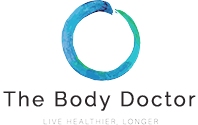Pregnancy is a vital time of growth and development during which the mother’s nutrition greatly influences both her health and the health of her baby. The food that the mother consumes is the main source of nourishment for her unborn, so it is very important that she eats nutrient-rich whole food.
Proper nutrition helps optimise her baby’s growth and development. Although pregnant women require more calories during pregnancy, weight gain should be a gradual process. Women who are underweight when falling pregnant may need more calories, and women who are carrying extra weight may require fewer calories. Epigenetics, an emerging field of science, suggests that factors such as diet, lifestyle and stress can impact the health not only to the person exposed but to the health of their offspring. Pregnant women influence their unborn child in subtle and significant ways depending on their nutritional and lifestyle habits immediately before and during pregnancy. Epigenetics plays a role in the transmission of a mother’s good and bad habits to her child’s health. This also holds true to the father, as their sperm is also influenced by their dietary and lifestyle choices.
I address pregnancy from planning through to post -pregnancy weight loss. Improving nutrition and achieving optimal weight prior to pregnancy has positive epigenetic consequences. Women have specific nutritional needs during pregnancy and there are nutritional strategies that may improve cognition and brain development of the baby. Regulated slow and steady weight gain is an important aspect of a healthy pregnancy. Breast feeding has its own nutritional needs and requirements. If breast-feeding, post-pregnancy weight loss needs to be carefully managed to ensure that lactation is not compromised. By addressing nutrition and lifestyle before, during and after pregnancy, the mother’s health, baby’s health, and baby’s future health can all be positively influenced.


